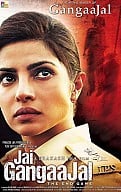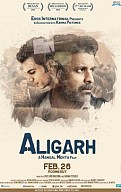KI AND KA MOVIE REVIEW


“What happens when an extremely ambitious man marries a girl whose idea of happiness in life is the family’s happiness” - You might wonder that this is the plot of most of the soap operas that you may have watched. There are umpteen number of films also which has exploited this scenario. Now, if you want to understand what the film Ki and Ka is all about, please use the gender reversal mode to the initial statement! There you go, Ki and Ka is as simple as that.
Director Balki has penned a simple story with reversal characteristics by making the actual ‘ki’ the ‘ka’ and the actual ‘ka’ the ‘ki’. Is the statement slightly complex to read and infer? You better get used to it as there are plenty of “ki and ka” oriented twisted dialogues in this film and this statement is only an orientation to that.
Kareena Kapoor as Kia artlessly lives her role. One might involuntarily start getting annoyed by her character towards the end, but after all that is the intention. On the parallel track, one gets the luxury of witnessing an effortless performer like Arjun Kapoor. One starts to wonder at a subconscious level if he knows that he is actually acting in a film in the role of Kabir and that he in real life is Arjun Kapoor. He definitely makes you say, “Most wanted Munda”
Short and cute appearances of Amitabh Bachchan and Jaya Bachchan do upgrade the overall good feeling the film tries to feed you from its start. Their chemistry is well known but it can never be left out without mentioning.
Every frame yells “WARNING - PC Sreeram at work”. This film didn't need any contribution for glamour quotient from its female lead as all the glitter and glamour are taken care by the canvass that PC Sreeram presents. Appreciations are due to the interior work done with respect to Ki and Ka’s residence. Every minute detail speaks for itself through the narration. Chandan Arora uses his cuts wisely making the experience a smooth one.
The BGM is trademark Isaignani style. What is impressive is that, this very progressive story gels well with Ilayaraja’s conventional music ensemble too. The positioning of songs and the lyrics contribute further to the overall experience that the film offers.
Possibly, the trouble that this modern yet conventional tale faces is with its engagement factor post the break. When the narrator could have chosen any conflict as the options are vast, the one chosen by him has less room for captivation of the audience’s attention.
Like the lines from 'The Road Not Taken' written by Robert Frost’s,
“Two roads diverged in a wood, and I—
I took the one less traveled by,
And that has made all the difference.”
The choice cannot be criticised as it is this tale that he chooses to tell us. The way a storyteller uses cinematic advantages is crucial and this story has a trouble with that too, specifically in the climax.






